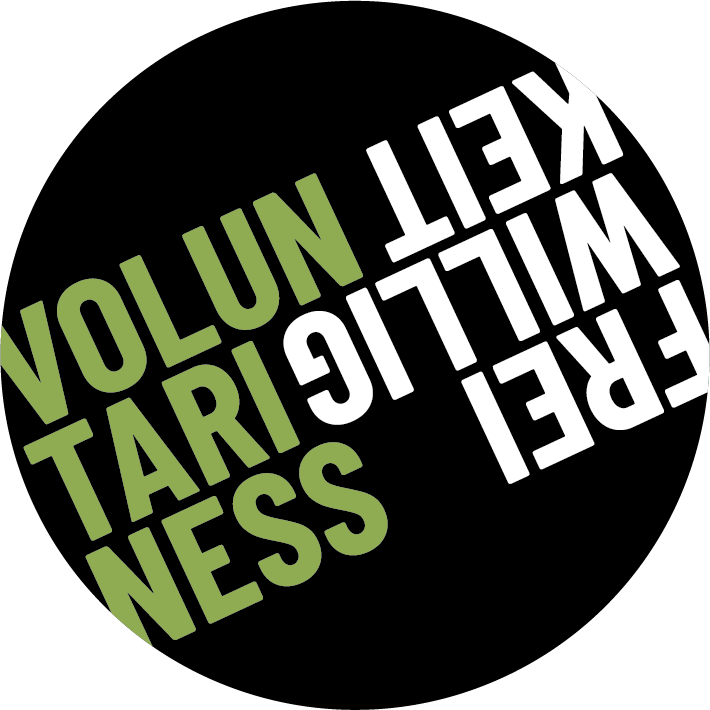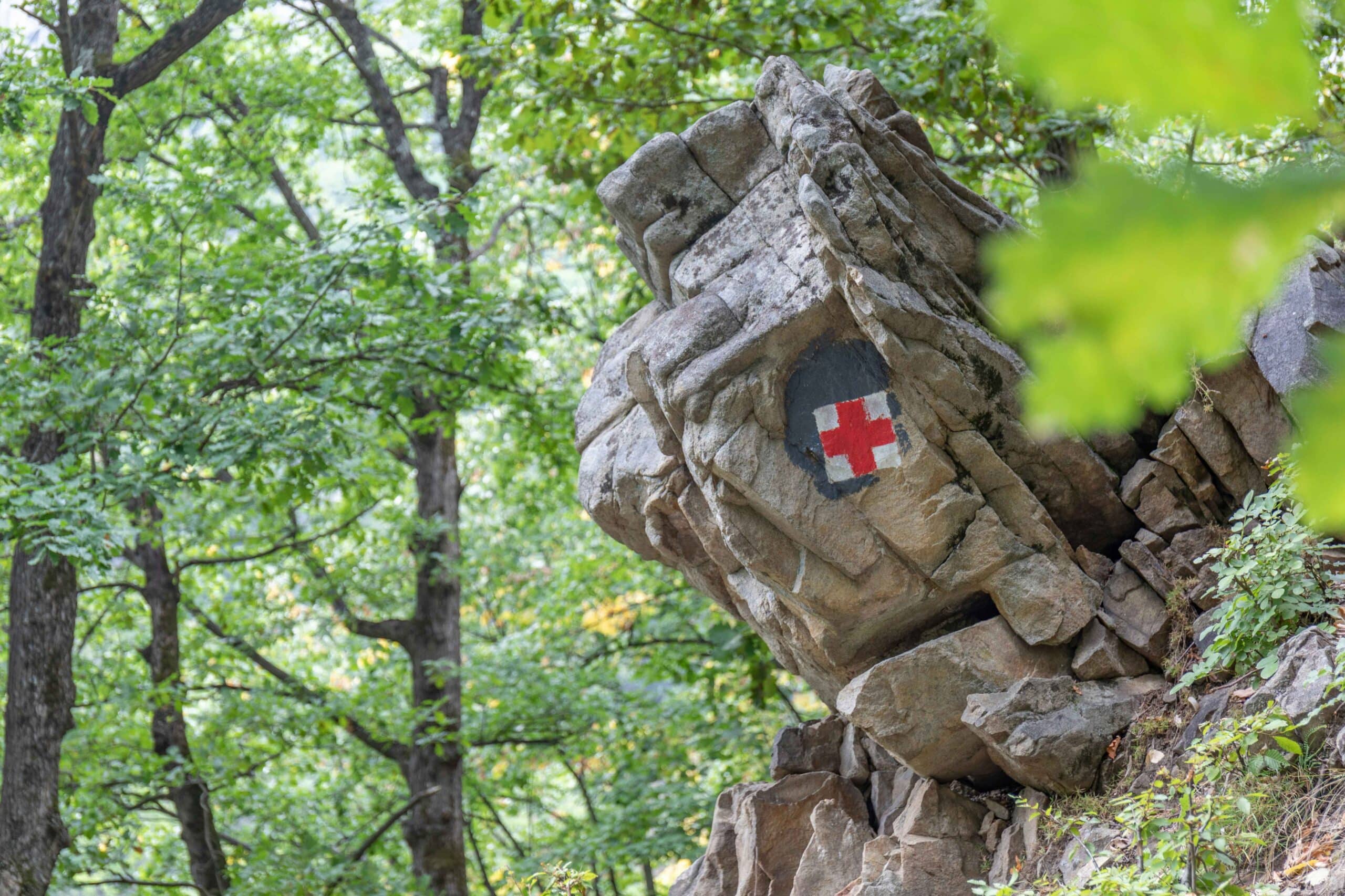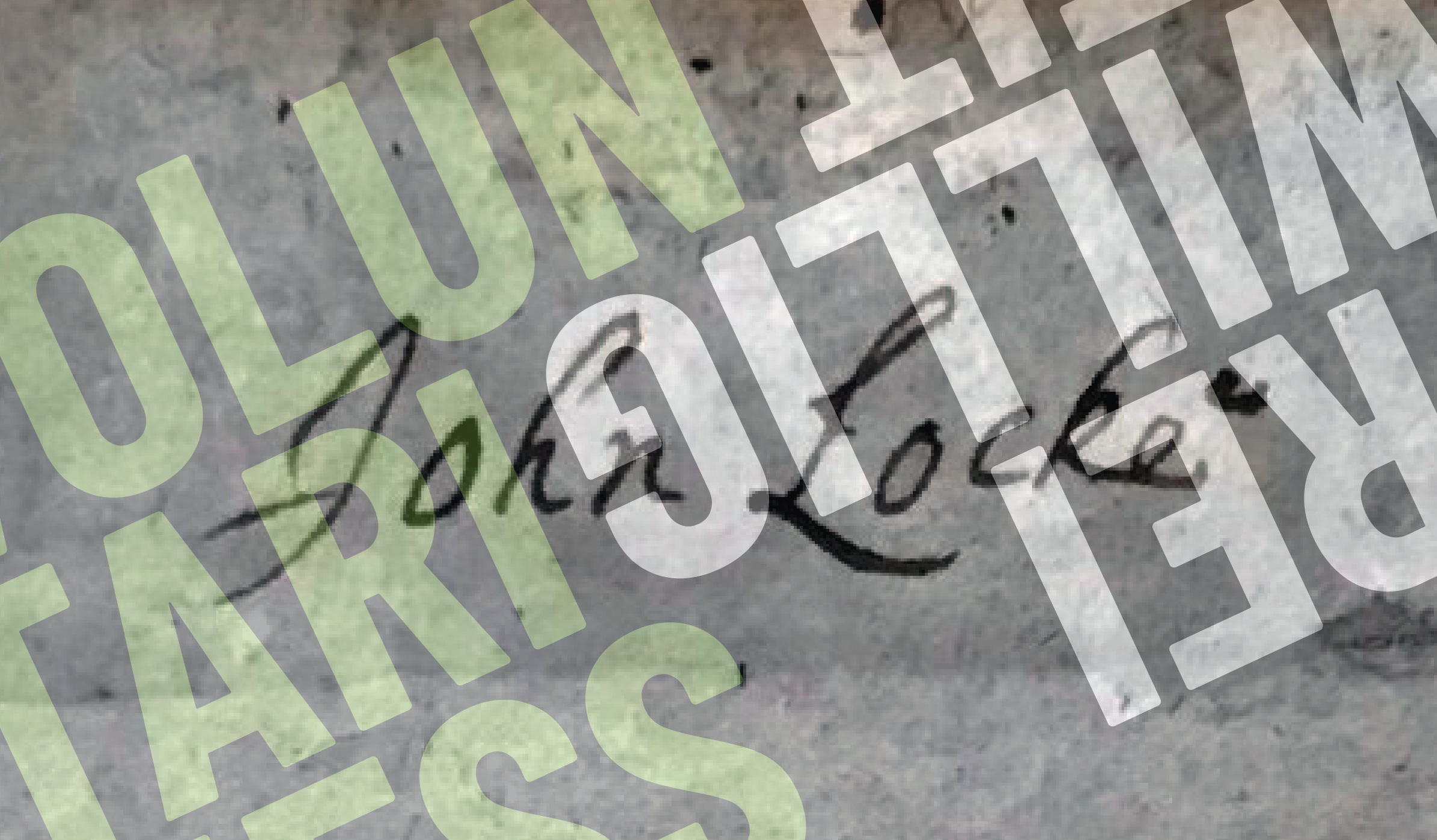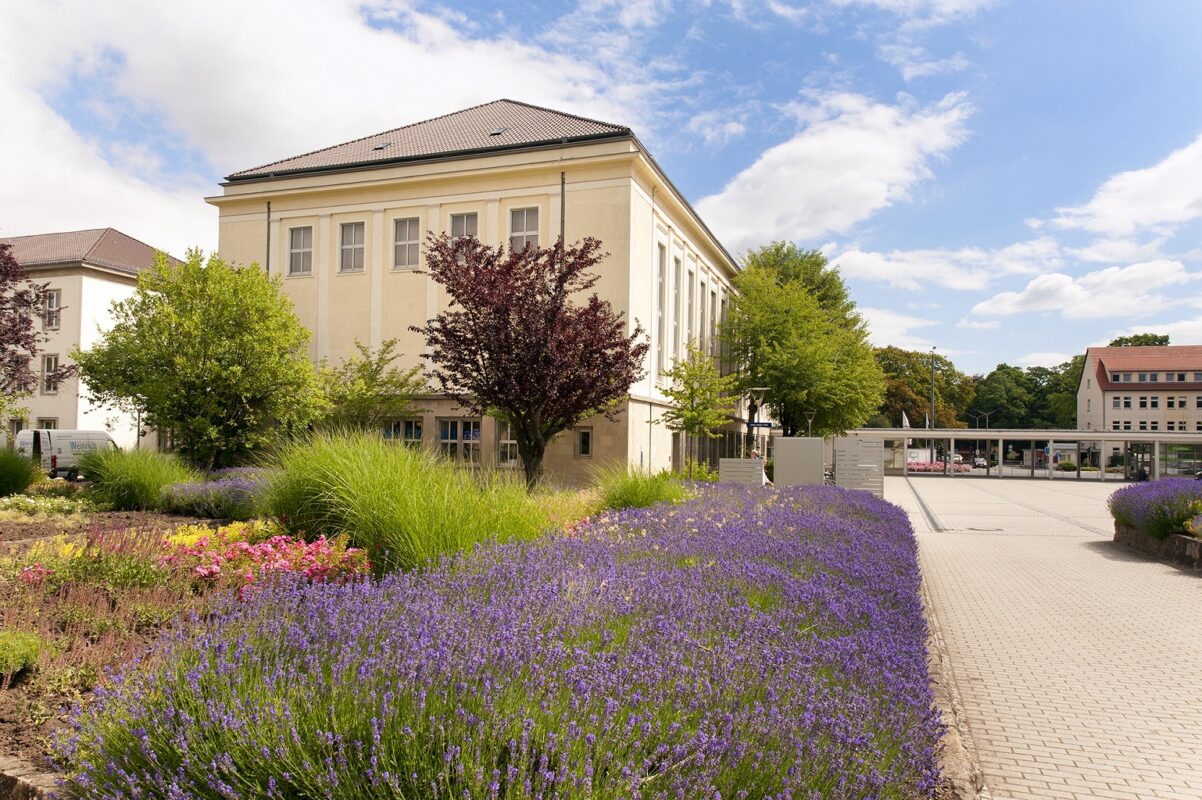
By Mitchell Dean and Jürgen Martschukat

Mitchell Dean is a sociologist at Copenhagen Business School.
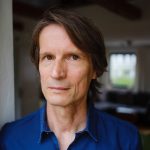
Jürgen Martschukat is a historian at the University of Erfurt.
Joys and Challenges of Researching Voluntariness II: An Interview with Mitchell Dean
During its funding period, the Research Unit on Voluntariness can invite several international scholars to Erfurt for extended stays. As Mercator Fellows, they join the group in order to discuss and further evolve our research approach towards voluntariness from fresh and independent perspectives. As experienced experts in their respective fields, they contribute a great deal of methodological knowledge and enrich the group’s projects on their theoretical basis. Usually, however, these colleagues are more or less new to the concept of voluntariness and are themselves curious about what it means with respect to their own research. So far, we have welcomed two fellows to Erfurt as “visiting voluntariness scholars.” In summer 2022, sociologist and historian Alexandra Oeser from the Université Paris-Nanterre joined us as a specialist on the concepts of Eigen-Sinn and agency. The following year, Australian sociologist and Foucault expert Mitchell Dean spent a semester with the group. In our second interview on “Joys and Challenges of Researching Voluntariness” Mitchell Dean and Jürgen Martschukat were chatting about cosmopolitan academic biographies as well as Mitchell’s journey to and with Foucault. They discussed governmentality in relation to voluntariness – “a nice word, in the sense that it’s a bit awkward” as Mitchell characterizes its potential for stirring up new debates and questions. They also looked back at the Mercator Fellowship in and around Erfurt, where meeting with mostly historians and visiting iconic sites from Medieval heritage to GDR history added some new aspects to Mitchell’s own work, especially on what might be “authoritarian governmentality.”
Jürgen: Hello Mitchell. Welcome and great we are talking today! I have known your work for quite some time now because you are one of those people who contributed to shaping governmentality studies from the very beginning. For warming up, why don’t you talk a bit about your history of research in general? What got you interested in Foucault, governmentality and questions of power which are big topics within your work? Which concepts do you mainly draw on?
Mitchell: Trained as a sociologist in Australia, during the period that I was there, it was a very open kind of experience. Maybe because it’s outside of the Northern Atlantic space, we were exposed to a lot of theory and a lot of intellectual traditions. It was a bit of a smorgasbord of ideas and a very open kind of area. I can remember that I actually wrote a thesis on Merleau-Ponty’s phenomenology of language for my honor’s degree. I went through structural Marxism and Althusser, little bits of first-generation Frankfurt School, and Foucault was one of these kind of figures within that. I settled on Foucault because I liked the historical perspective, and I liked this kind of historical element in sociology. Maybe in another life I should have become a historian. For my PhD I wrote what I ambitiously thought of would be a ‘genealogy of poverty’ that somehow connected with Foucault’s genealogies of madness and prison. In there, there was a shift from state theory, structural Marxism, Nicos Poulantzas, Louis Althusser and these kinds of thinkers to genealogies of power, knowledge and so on.
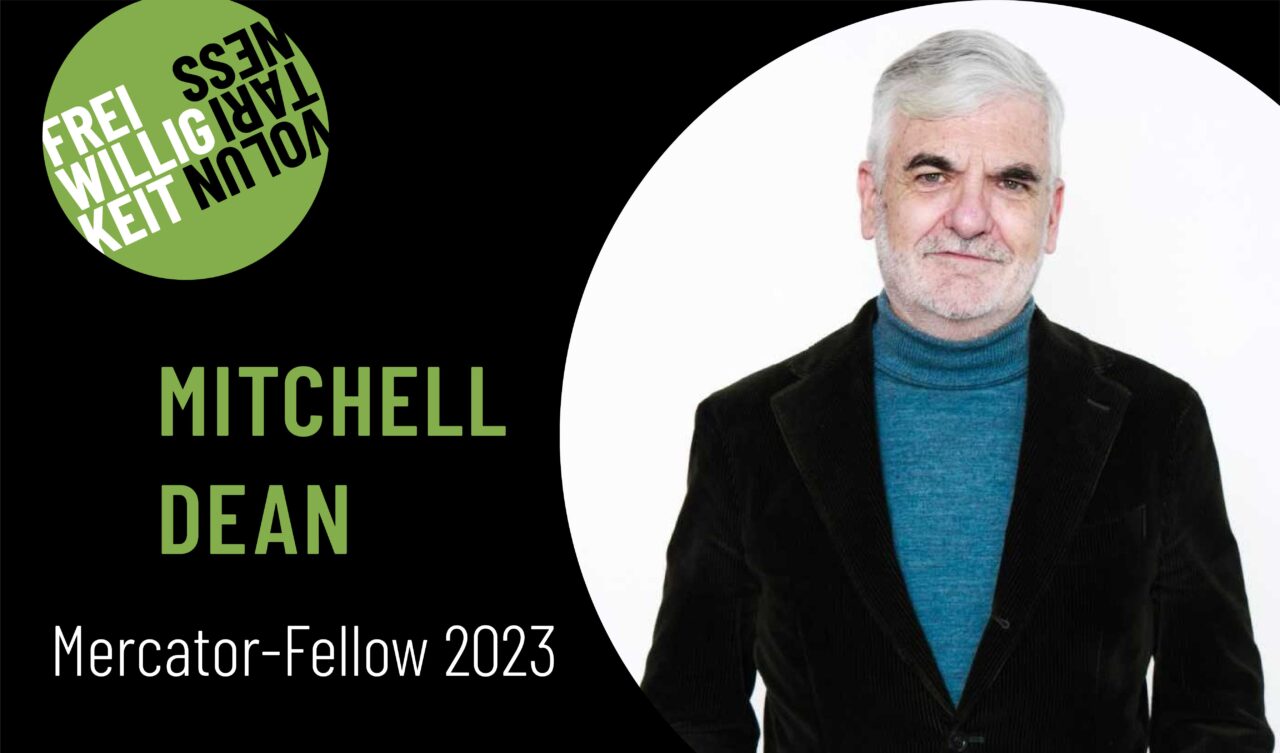
During that, the idea of governmentality started to be translated or at least little fragments of it emerged. By flipping the Marxist perspective my work has been reshaped in terms of thinking about governing and how governing might be as important as the mode of production: The way we govern might be a condition for the development of the labor market or the development of the idea of a family with a male breadwinner. It may be just as fundamental as what Marxists have thought of as infrastructure. I guess that’s how I came to that. Although people have said that nowadays I have gotten much more critical of these perspectives. But I was never not critical. From the beginning I was trying to not turn that kind of ideas into some kind of doctrine. In the early part of my academic career during the 1990s, while really discovering and understanding a perspective of governmentality, I might have been less critical. But that is a phase that you must take. You have to really get into something in order to work through the logic of it. That time was a brief period where liberalism seemed to have conquered everything; it led to a very limited politics, and very limited range of policy choices. Then, governmentality studies really had their moment.
After that, we may have observed the rebirth of sovereignty, with 9/11 as a crucial moment. I began to ask questions about the relationship of governmentality to other kinds of power. It was a phase of reevaluating and trying to think about these connections. Was there a kind of normative orientation towards liberalism within the governmentality framework? What about this definition of governing and power that was working through freedom? Didn’t that already have some kind of normative direction? And how could we think about the history of forms of governmentality that Foucault seemed to have put forward?
More recently I got into a whole series of debates that occurred in the inter-war periods in the German speaking world, through Agamben to some extent – whatever one thinks about his more recent ideas. I was particularly interested in one book called “The Kingdom and the Glory” that really opened the governmentality stuff up for me. On the one hand it helped me on the question of sovereignty, on the other hand it led to debates around political and economic theology. I remained in a dialogue with the Foucauldian conceptual framework and its narratives but moved into a different direction. At certain points I have been in academic management, both in Australia and Denmark, so I am not so much a classical researcher, and then I moved from Australia to Copenhagen. Those were important fractures in my academic career which make it very difficult for me to give a kind of narrative of my own intellectual development in some ways, although I think my path is quite coherent and certainly not opportunistic or occasionalist.
Jürgen: In the very beginning you mentioned that Australia was a fruitful ground for innovative sociological and political theory as well as conceptual writing. From my European perspective I would agree with your very convincing explanation. There seemed to be – and maybe still is – more innovative power in the Australian academic context. One reason might be that everything happens more on the fringes of an academic discourse that usually is quite dominated by the US. How does that relate to going to Denmark which is another country rather at the fringes of a bigger academic market?
Mitchell: In a way this kind of theory driven battle became visible in my empirical work. When I became interested in what was called poststructuralism, it wasn’t a marginal activity in Australia at all. There were a lot of people that had spent some time in Europe, in Paris for instance. And with London and Berkeley I would say Sydney was a place where this kind of genealogical work had a very wide reception, with a lot of independent publications and papers coming out there. Denmark, however, which certainly has been on the fringes as well, had only little of those spaces. Although I’ve been here for ten years now, it still strikes me that people have been struggling to get those spaces. One has that idea of Denmark as a social democratic state which must be wonderfully tolerant of this kind of intellectual innovation. In fact, it’s quite the opposite. It’s a very state driven higher education system and the people had have to carve out those little spaces. It’s been a struggle to do that and it’s a continuing struggle to do so. Moreover, the Danish academic culture – and maybe that’s true for all the Scandinavian systems – is very much disconnected from the German one. It is much more connected to the academic networks of the UK than to Germany. Maybe there are historical reasons for that.
Jürgen: With regard to Germany, we started to talk about governmentality in the late 1990s and early 2000s, briefly after your first book on governmentality came out. I experienced that time as a highly innovative moment as well, thinking with Foucault about governing as this very complex and diverse practice. It was the point when we were grappling with the concepts and started discussing them. At the same time more sovereign types of power were unfolding again after 9/11. How would you describe the historical context of the reception of Foucault and governmentality?
Mitchell: Within intellectual and academic circles that emerged at that time, under the pressure of a very triumphant economic liberalism, the most liberal versions of Foucault – if we call them like that – occurred. Maybe from the late 1980s governmentality reached its widest intellectual expression in some kind. My own book for example or [Nikolas] Rose’s book [Powers of Freedom] at the end of the 1990s were only kind of summaries of a lot of work that had been going on before that. But simultaneously that very moment was the moment where you had the anti-globalization protests in Seattle. You had the Genoa event where the guy was killed in those protests. The idea that we somehow had evolved through different systems of power and that liberal governing primarily meant self-governing … at least the limits of that began to appear at that point. And then of course you have 9/11 and the war on terror. You’re back to stuff from the Schmidtian problematics of exception and all that kind of things. Things like that took me from the Foucauldian tradition back to the question of: “Oh maybe Foucault didn’t really think through that problem of sovereignty and its relationship with governmentality and liberalism fully.”
Jürgen: Let’s talk about the problem of voluntariness in this context. You came to Erfurt as a Mercator visiting fellow and our group somehow talked you into thinking about it. How do – or maybe don’t – your research questions then and now connect to voluntariness?
Detour #1: Audio Snippet from the Interview (transcript below)
Mitchell Dean on the intriguing power of a concept of voluntariness:
Mitchell: In English “voluntariness” is quite a nice word – in the sense that it’s a bit awkward and it displaces the debate a little bit. Voluntariness is a word you stumble over. It gives you some moment of reflection. It describes a kind of positive condition or state that somehow inheres in an individual. It’s both prior to freedom but it’s more specific than that because you can be free from things, free from coercion, you can be free to just go away in private. But voluntariness suggests a kind of openness to some sort of action. But that’s prior to that action. It’s different from freedom in that way. There is some kind of resonance to me around it, a sense of virtue around this idea of voluntariness. To properly exercise your voluntariness is to engage in a kind of virtuous conduct, to be freely engaged in something. It’s not just being free but actually engaging in something. Which could have a religious-theological resonance in terms of charity, it could be a name for a long history of one of the virtues in that sense. It has an element of service to it.
But then we come to thinking about social theory more generally and thinking about governing as well. Maybe there is a mythos in a lot of our narratives and our social theory, where we would like to start with the presupposition that humans are fundamentally self-determined, and they have this. We don’t want to see them as completely shaped by social forces or historical forces, completely determined. We want just that their core is something like this voluntariness. You see that in notions of civil society, in the idea that voluntariness expressed in civil society could be a solution to many different problems of governing, in different areas. There is that element to it.
I did try to think what the different forms of voluntariness would be in governing and power relations. I mean one brief sketch is to say that firstly, it’s a resource. So there are many kinds of ways of thinking about it: in economically liberal or neoliberal ways we think about entrepreneurship, this abundant resource of people exercising some kind of voluntariness, a particular kind of entrepreneurship. Then it could be something that could be cultivated as well, it’s an element that’s already there, but it can be cultivated, and it can be shaped. My example there would be the consumer. There’s voluntariness that’s expressed when the consumer goes to the proverbial supermarket and marketing and advertising and everything is all about trying to shape that, the sovereignty of the consumer is what it’s called. Then there is voluntariness in its relationship to affect. There are a lot of protests or political assemblies, so there are a lot of practices that evolved in these assemblies that ask participants to exercise a voluntariness. Whether its to start making particular gestures or making a slogan like “the people united will never be defeated” or whatever. This has an affect and has a kind of collective solidarity that rises out of that. So that’s the third one. The fourth one is the kind of idea of duty that a lot of governing would depend upon. Individuals voluntarily understanding it as their duty, as a taxpayer to properly fill in their tax forms or to be a juror or something like that. So, there are different kinds of manifestations of voluntariness in relationship to different practices of power and governing. That strikes me as quite an interesting perspective that it gives on those.
Jürgen: What connections do you see between voluntariness and governmentality? Voluntariness has a lot to do with conduct, proper conduct as well as the ‘conduct of conduct’ – one of the most popular phrases to describe how people are governed in liberal societies.
Detour #2: Audio Snippet from the Interview (transcript below)
Mitchell Dean on the two poles of voluntariness with regard to governmentality:
Mitchell: Maybe one way of thinking about it would be to say that there are two poles [of voluntariness in governmentality]. One is more the cultivating, shaping and forming one. At the other end there is some kind of unconditioned element. For example, the first pole would be the early concepts of Foucault on power and on different practices of governing subjectivity, so people become self-managing and self-responsible. It is connected to this kind of confessional idea, that people even voluntarily avow that they are mad or what their repressed sexual desires are, for example. This is cultivation and shaping, but there is a kind of demand for voluntariness in some practices which can show a very disciplinary dimension as well. An example could be activation policies toward welfare recipients. They are addressed to undergo some training and maybe sometimes therapy, in order to come to the realization: “Yes, you’ve been responsible for your condition and you’re going to voluntarily take action.”
The second pole is where one keeps saying “Yes, but…”. We would like to believe or assume that there is a kind of voluntariness that goes beyond all these governmental practices – pastoral practices as Foucault would have called it. […] It would be possible to develop a whole kind of culture where human beings voluntarily undertook practices of caring for themselves and shaping themselves–maybe seen normatively superior to this other disciplinary end. In that sense voluntariness covers that whole range of government of self and others, it stretches from the self-technologies and selfcare to the more disciplinary practices. And even on the more disciplinary ends, people like the mentioned welfare recipient could be asked to undertake self-governing technologies in order to shape themselves. That’s a strange trajectory because it does try to reconcile the possibility that voluntariness is something that can be shaped by governmental practices, with the idea that there is space for self-care and self-governing and self-technology. Which, by the way, might also be a moment of resistance and a moment of opening up so called counter-conducts.
Jürgen: Since you mentioned that disciplinary pole of governing through voluntariness: In your work you have touched upon the notion of authoritarian governmentality as well. Did being with the group and connecting your own research to our work on voluntariness influence your perspective on authoritarian governmentality? By thinking about how voluntariness and more disciplinary forms of power interact?
Mitchell: Yes, there have been a couple of things that developed by being with the group. And there is a couple of things about having been in Erfurt, about the location and the history. A lot of people I met during my time here were North American historians, so I got a good dose of American history, especially about the liberal and republican formation of the United States. The US in some ways acted as a kind of proxy model for the liberal type of societies, whatever flaws it might have. That has been contrasted with Germany’s twentieth-century history. On the one hand people were discovering voluntariness in the worst kind of cases, for example National Socialism. But forms of voluntariness were being uncovered in practices in the GDR as well. With regard to my work that made me particularly think about whether authoritarianism is a single category at all. Can you put both of those two examples in the same box?
Apart from that there was the general experience of being in Erfurt. It showed the wonderful cultural richness of German history, Goethe in Weimar and Luther particularly in Erfurt. On the other hand, I also had the chance to visit a lot of memorial sites and museums: Memorial sites of Buchenwald, of Andreasstraße, of Topf & Söhne. Those kinds of things can’t not interfere with your thinking when you are being exposed to them with a certain density.
It definitely led me to revisit my earlier skepticism to some of the problems around liberalism and authoritarianism. How can you readily characterize a particular practice as liberal and another practice as authoritarian? Let’s not assume that there is no voluntariness in non-liberal societies. Much of the research shows that quite the opposite is the case. There are different forms of participation, different attempts to cultivate innovation, entrepreneurship, even within so-called authoritarian societies. One shouldn’t be complacent about liberal societies which also rely on practices that do have authoritarian elements like discipline and sovereignty. It definitely led me to think again about this quite complex question of authoritarian governmentality. But I also reflected upon the way in which the governmentality framework itself seems to propose a kind of teleology towards liberal or neoliberal forms of governmentality, a narrative which again has been disrupted by the history we’ve experienced in the first quarter of the 21st century. Thus, being in Erfurt has been an incredibly rich experience for me, both from the intellectual point of view and also the historical, contextual point of view.
Jürgen: Wonderful, we are happy to hear that! Did you, however, also experience the current political situation in Thuringia and Erfurt, its capital? Unfortunately, Thuringia became one of the centers of right-wing populism in Germany and one might observe that this right-wing populism works as some kind of gateway for voluntary – if you might call it like that – expression of some people’s dissatisfaction with what they call “the system”. Is it possible to connect theoretical thinking about authoritarian governmentality to such waves of populism we nowadays see in Thuringia, for example, or even all over Europe? It’s a big question, I know, but maybe you have a couple of thoughts on this?
Mitchell: Maybe we should go back to the concept of populism. I’m not a political scientist and I know there is a lot of literature on this, but in some way we definitely see movements which claim to be representative of the people. At least rhetorically both right-wing or left-wing movements seek to claim a greater degree of democracy against elites, institutions and established parties. You can observe that throughout Europe, North America, and Australia as well. In academic and public discourse, “populism” in a way starts to fulfil the same kind of function that totalitarianism once did. It provides some kind of negative definition of what the liberal democratic mainstream is. No doubt, these are dangerous movements, particularly when they start taking actual power, like in Italy for example. And this discourse somehow posits an equivalence between left and right versions it. The common answer to this is usually that we need to revitalize our deliberative processes and strengthen the liberal democratic center.
Maybe these movements should be positioned also in a long-term historical perspective, something called the counterrevolution against the welfare state. For decades, movements – perhaps mainly of the right – have definitely been seeking to criticize the institutions of the welfare state, criticize the authority of experts and the so-called elites that they claim represent special interests in the welfare state. Every time people heard the neoliberal message: “You should look after yourself. There are limits to what we can do, but you should look after yourself.” During the Covid period, however, people started to rephrase the message: “Well, you’ve been telling us that we need to look after our own health, we need to self-govern as far as this is concerned. And now you are telling us we need to do all of these things: wear masks, getting vaccinated, stay inside.” So, there are at least two ways in which current populism could be contextualized. One could be in terms of this longer counterrevolutionary movement to the welfare state in these societies. The other would be that they pick up a lot of the political and cultural elements of this sort of the self-governing individual and the self-governing people, that had been promoted by liberal ways of governing itself.
Jürgen: Thanks, Mitchell. This is definitely another really big topic – and another one-hour talk might follow. However, we must come to an end. As usual it was a highly inspiring conversation and great talking to you! Thank you very much for taking the time once more and for having been part of our group for a couple of months in 2023 in Erfurt!
Mitchell: Thank you! It has been a pleasure. Hopefully that isn’t the end of our connection.
Suggested Citation: Dean, Mitchell and Jürgen Martschukat: “Joys and Challenges of Researching Voluntariness II: An Interview with Mitchell Dean”, Voluntariness: History – Society – Theory, June 2024, https://www.voluntariness.org/joys-and-challenges-of-reseraching-voluntariness-two/.


